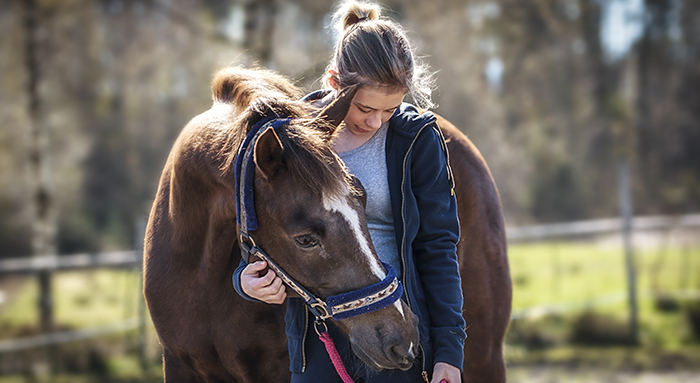To help horse owners to identify whether their equine is at risk, postal test specialists Westgate Labs, have added a faecal sand test to their range of easy to use, evidence-based test kits.
Carolyn Cummins MVB Phd MRCVS, consultant vet to Westgate Labs, said: “Horses presenting with sand colic usually have a history of grazing on sandy soils, drinking from natural water courses, being kept on restricted grazing or fed in a ménage. For equines in these situations a faecal sample can be taken at intervals through the year and checked for sand to assess the levels in the gut.
“Test results from Westgate are expressed as a percentage to give a quantitative measure of the level found. While it’s not desirable to find any sand in faeces, some healthy horses are not affected by a small amount. For this reason positive tests should be discussed with your vet on a case by case basis. Together you can determine whether other symptoms such as diarrhoea/colic are also present and devise an appropriate management and/or treatment protocol.”
With the variables of gut movement it is possible for the test to generate a false negative. For this reason, the Westgate test includes two sample kits; if no sand is detected in the first sample then a second can be taken a few days later.
Alternatively where sand is detected then the second can be used to retest the horse following management adjustments. Abdominal ultrasound and X-rays can also be used to detect sand in the gut, although X-rays may not be easy in larger horses and require a powerful machine.
Kristy Hodgson, director of operations at Westgate Labs, said:“The test itself is a simple sedimentation technique which horse owners can of course conduct at home. We have introduced this service in response to requests from customers who would prefer to send their samples to the laboratory.
“Conducting them in the lab enables us to generate a consistent quantitative result so that levels can be easily monitored over time.”


